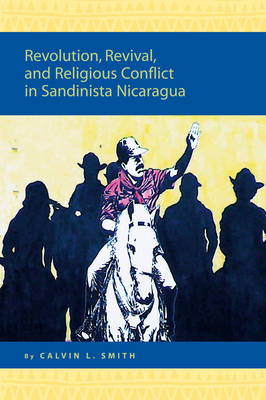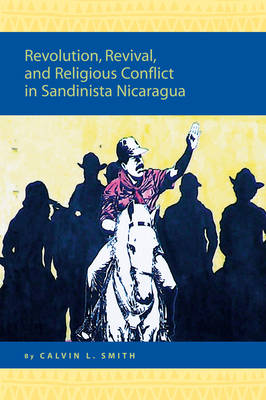
- Afhalen na 1 uur in een winkel met voorraad
- Gratis thuislevering in België vanaf € 30
- Ruim aanbod met 7 miljoen producten
- Afhalen na 1 uur in een winkel met voorraad
- Gratis thuislevering in België vanaf € 30
- Ruim aanbod met 7 miljoen producten
Zoeken
Revolution, Revival, and Religious Conflict in Sandinista Nicaragua
Calvin L Smith
€ 218,45
+ 436 punten
Omschrijving
This interdisciplinary study breaks new ground by exploring relations between Protestants (mainly Pentecostals) and the Sandinistas in revolutionary Nicaragua, which to date have received scant attention. It challenges the view that most Protestants supported the Sandinistas (in fact, the majority vigorously opposed them) and establishes why many believed Nicaragua was heading towards communism or totalitarianism. Meanwhile, the Sandinistas expressed irritation with Pentecostalism's otherworldliness and support for Israel. Pentecostals were harassed, even brutally repressed in the northern highlands, leading many to join the Contras. That a minority of Protestants supported the Sandinistas caused further problems.
Pentecostals and Sandinistas were ideological rivals offering an alternative vision to the poor: revolution or revival. As Pentecostalism exploded, a collision between the two was inevitable.
Pentecostals and Sandinistas were ideological rivals offering an alternative vision to the poor: revolution or revival. As Pentecostalism exploded, a collision between the two was inevitable.
Specificaties
Betrokkenen
- Auteur(s):
- Uitgeverij:
Inhoud
- Aantal bladzijden:
- 312
- Taal:
- Engels
- Reeks:
- Reeksnummer:
- nr. 6
Eigenschappen
- Productcode (EAN):
- 9789004156456
- Verschijningsdatum:
- 9/03/2007
- Uitvoering:
- Paperback
- Formaat:
- Trade paperback (VS)
- Afmetingen:
- 163 mm x 240 mm
- Gewicht:
- 594 g

Alleen bij Standaard Boekhandel
+ 436 punten op je klantenkaart van Standaard Boekhandel
Beoordelingen
We publiceren alleen reviews die voldoen aan de voorwaarden voor reviews. Bekijk onze voorwaarden voor reviews.








